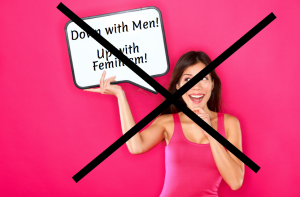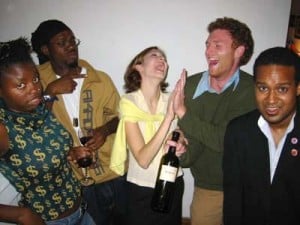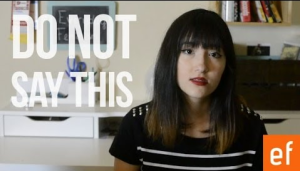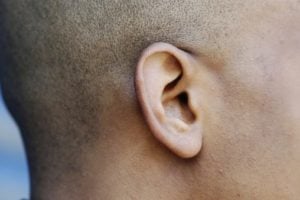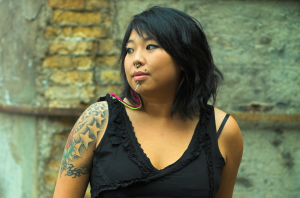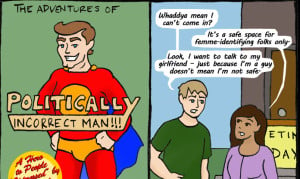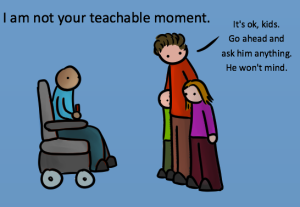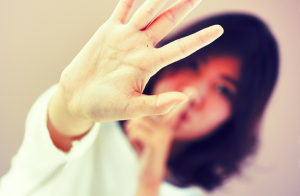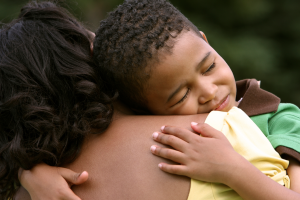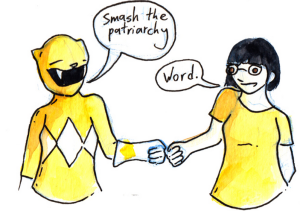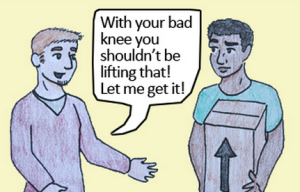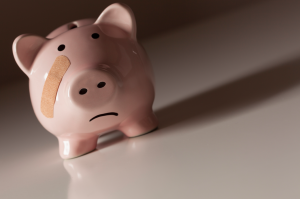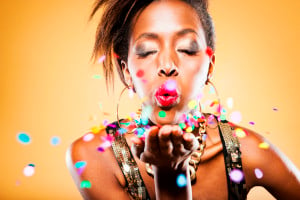INTERVIEWEE: One thing I think people get right about New Orleans is that they think it’s a third world city and it’s true; it is. If we didn’t have an NFL team, we would be a third world city. But I have no problem with that.
PASSERBY: Sorry about that!
INTERVIEWEE: Oh, no problem about that, baby!
***
As far as bulimia, anorexia, things like that: just take a look at some of the healthy girls out here and let me know if you see any ultra-skinny model types walking around 6th and Loyola Avenue.
It’s rare. It’s more of a white people thing, no lie.
An eating disorder takes creating a habit of not eating and the environment that we live in just doesn’t call for an environment of not eating.
We wake up eating, we go to sleep eating. Walking; eating. We eat. We never stop eating. I ate like two minutes ago.
I feel like I have severe issues with food. I feel like growing up with my family, although no one called things “eating disorders,” I feel like there are food issues. And I guess the reason I would say it that way is that they don’t necessarily fall cleanly into the binge and purge or anorexic eating disorder models that we’re familiar with.
I do think that a lot of times, black people deal with their problems by eating. So if in this instant, an eating disorder can be excessive eating, then I definitely think that black folk can have eating disorders.
Most of my family has an eating disorder, but it happens to be that they eat unhealthily to the point that they’re morbidly obese. Eating is how we show love in our family and a lot in our community, and it goes way overboard. It’s really hard to deprogram.
Maybe black people are not as prone to it because body image is a lot different in the black community. We really value curves. I think curves are beautiful.
An eating disorder? I don’t know. I tease a couple girls sometimes because maybe they don’t like to eat as much and they watch their diet. But black is voluptuous. We’re curvy.
The very few times that I’ve seen someone who’s anorexic or are being told that they’re anorexic, usually what they’re being told by the community is that, “You’re trying to look like another race. You’re trying to model yourself by what you’re seeing in these magazines and that’s not who we are. That’s not what we even call beautiful.”
Teenage Caucasian females is what I think of.
When I was in high school and middle school, I was in a prep school where it was all white girls and a lot of people in my class were bulimic, a lot of people were anorexic and I already had a different body type than they did. I already had a curvy body type with hips, with boobs. And this is pre-Kim Kardashian, this is pre-Jennifer Lopez. And it’s crazy when I look back at those pictures; I was so skinny, I was so small, but I felt like something was wrong with my body.
I attempted bulimia when I was probably nine or ten. My ballet teacher had a meeting with my mom and I–she had a children’s company. And she said how talented I was, but I was too fat to be in her company. I wanted to be a ballerina, I wanted it badly. I remember hearing some of the girls in my ballet class–they were older, they were white–and they were talking about a specific school in the city that they were having plumbing issues because of so many girls vomiting in the toilet. And I heard them talking about how they did it and that’s how I got the brilliant idea of, “Well I’m gonna try that too!” That was the beginning of a very dysfunctional relationship with food.
One of the things that we’ve been tracing about adolescent girls over the course of the past 30 or 40 years is there was a time when African American girls were much more robust in their sense of self, and much less likely to suffer from disordered eating. And what we’ve seen is that African American girls are now becoming increasingly more likely to suffer from disordered eating. This seems to be a post-integration experience, so more and more young black girls going to school in environments that give them very strong messages about normative body types that African American girls have a difficult time fitting into.
If we look at that idea of normative gaze, and we take that with what Du Bois was talking about in Souls of Black Folk, this idea of double consciousness and how African Americans tend to see themselves through the eyes of the other world. This beauty, this notion of what is normal and beautiful and aesthetically pleasing from the dominant culture, then we’re already looking at ourselves in a deficit. That has to have all kinds of other effects. How we understand our bodies, how we eat, how we live.
I was a soccer player in high school where I learned all of the tools and tricks of being bulimic and spent a couple of years in college being bulimic. I’m a survivor of childhood sexual assault. It was very clear to me once I got into therapy for eating disorders later on that lots of the women who were experiencing eating disorders were managing the crisis of our bodies, and it was a crisis that had begun because we had been either raped or molested or somehow sexually assaulted as young people.
I know quite a few black folk who have had eating disorders; we just don’t talk about it because there’s so much shame around it. It is my mission to get us to talk about it. Not only black people, but women in general. We have a problem. There’s a huge body image problem in this country.





